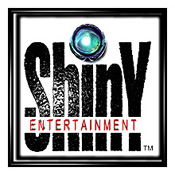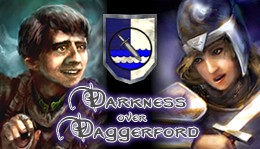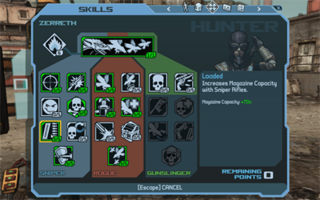Related Research Articles
A video game developer is a software developer specializing in video game development – the process and related disciplines of creating video games. A game developer can range from one person who undertakes all tasks to a large business with employee responsibilities split between individual disciplines, such as programming, design, art, testing, etc. Most game development companies have video game publisher financial and usually marketing support. Self-funded developers are known as independent or indie developers and usually make indie games.

Electronic Arts Inc. (EA) is an American video game company headquartered in Redwood City, California. It is the second-largest gaming company in the Americas and Europe by revenue and market capitalization after Activision Blizzard and ahead of Take-Two Interactive, and Ubisoft as of May 2020.
Ensemble Studios was an American video game developer. It was founded by Tony Goodman in 1994 and incorporated the following year. It borrowed the name of Ensemble Corporation, a consulting firm founded by Goodman in 1990. It was acquired by Microsoft in 2001 and operated as an internal studio until 2009, when its development capabilities were officially disbanded. Ensemble developed many real-time strategy games, including the Age of Empires game series, Age of Mythology, and Halo Wars. In addition to game development, Ensemble Studios also made the Genie Game Engine used in Age of Empires, Age of Empires II: The Age of Kings, and Star Wars: Galactic Battlegrounds. The studio sold 20 million games and was worth an estimated $500 million.

Ubisoft Entertainment SA is a French video game company headquartered in the Montreuil suburb of Paris, with several development studios across the world. Its video game franchises include For Honor, Assassin's Creed, Prince of Persia, Far Cry, Rayman, Rabbids, Watch Dogs, Just Dance, and the Tom Clancy's series.

Stainless Steel Studios (SSSI) was a video game developer, started in 1997 by Rick Goodman and Dara-Lynn Pelechatz. The company was based in Cambridge, Massachusetts, and focused on the development of real-time strategy games.

Shiny Entertainment, Inc. was an American video game developer based in Laguna Beach, California. Founded in October 1993 by David Perry, Shiny was the creator of video games such as Earthworm Jim, MDK and Enter the Matrix. Perry sold the company to Interplay Productions in 1995, which sold the studio to Infogrames, Inc. in 2002. After Foundation 9 Entertainment acquired Shiny in 2006, the company was merged with The Collective in October 2007, creating Double Helix Games.

Gamasutra is a website founded in 1997 that focuses on all aspects of video game development. It is owned and operated by Informa and acted as the online sister publication to the print magazine Game Developer.

Linden Research, Inc., doing business as Linden Lab, is a privately held American Internet company that is best known as the creator of Second Life.

Mad Catz Global Limited is an American company that provides interactive entertainment products marketed under Mad Catz, GameShark and TRITTON. Mad Catz developed flight simulation software through its internal ThunderHawk Studios, developed chess hardware and flight simulation under its Saitek brand, published games under its Mad Catz brand, and distributed games and video game products for third-party partners. The company was incorporated in Canada and headquartered in San Diego, California. Mad Catz had offices in North America, Europe and Asia.

Big Bumpin' is an advergaming title from Burger King for the Xbox and Xbox 360 video game consoles. published by King Games and developed by Blitz Games. On November 19, 2006, Burger King started selling it with any value meal. It is one of three titles released by Burger King.
EA Black Box was a video game developer based in Burnaby, British Columbia, Canada, founded in 1998 by former employees of Radical Entertainment and later acquired by Electronic Arts (EA). The developers are primarily known for the Need for Speed and Skate series. It was renamed Quicklime Games during the development of Need for Speed: World, but after a series of restructures it was shut down in April 2013.

High Voltage Software, Inc. (HVS) is an American video game developer based in Hoffman Estates, Illinois. Founded in April 1993 by Kerry J. Ganofsky, the company is best known for developing Lego Racers (1999), Hunter: The Reckoning (2002) and The Conduit (2009).
Koch Media GmbH is a German-Austrian media company headquartered in Höfen, Tyrol, Austria, with an operating subsidiary based in Planegg, Germany. The company was founded in 1994 by Franz Koch and Klemens Kundratitz. The company operates video game publishing labels Deep Silver, Prime Matter and Ravenscourt, the video game developers Warhorse Studios and Milestone, as well as a film distribution arm, Koch Films. Koch Media's parent company, Koch Media Holding, was acquired by Swedish holding company Embracer Group in February 2018.
HeroEngine is a 3D game engine and server technology platform originally developed by Simutronics Corporation specifically for building MMO-style games. At first developed for the company's own game Hero's Journey, the engine won multiple awards at tradeshows, and has since been licensed by other companies such as BioWare Austin and Stray Bullet Games.

Meteor Games was an independent online gaming studio formed in 2007 by Neopets founders Adam Powell and Donna Powell.

Runic Games was a Seattle-based American computer game company formed by Travis Baldree, Max Schaefer and Erich Schaefer, Peter Hu, and the Flagship Studios Seattle team responsible for Mythos. It was a subsidiary of Perfect World. In 2009, the company released Torchlight, a single-player action role-playing game. They released a sequel, Torchlight II, in 2012. It was at this time the developers revealed they were no longer pursuing plans to create an MMO in the Torchlight universe.

Darkness over Daggerford is a premium module for BioWare's Neverwinter Nights role-playing video game. It was released for digital distribution on August 16, 2006. Considered a user-made mod, the game was created by Canadian company Ossian Studios, headed by former BioWare employee Alan Miranda.
Bungie, Inc. is an American video game developer based in Bellevue, Washington. The company was established in May 1991 by Alex Seropian, who later brought in programmer Jason Jones after publishing Jones' game Minotaur: The Labyrinths of Crete. Originally based in Chicago, Illinois, the company concentrated on Macintosh games during its early years and created two successful video game franchises called Marathon and Myth. An offshoot studio, Bungie West, produced Oni, published in 2001 and owned by Take-Two Interactive, which held a 19.9% ownership stake at the time.

Scaleform GFx is a discontinued game development middleware package, a vector graphics rendering engine used to display Adobe Flash-based user interfaces and HUDs for video games. In March 2011, Autodesk acquired Scaleform Corporation and Scaleform GFx became part of the Autodesk Gameware line of middleware. On July 12, 2018, Autodesk discontinued Scaleform GFx and is no longer available for purchase.
References
- ↑ "Coded Illusions profile on Gamasutra". Gamasutra. Retrieved 2008-08-10.
- ↑ Opening speech at the official opening.
- ↑ "Coded Illusions projects page". Coded Illusions. Archived from the original on 2008-03-02. Retrieved 2008-06-25.
- ↑ "Coded Illusions profile on Gamasutra". Gamasutra. Retrieved 2008-08-10.
- ↑ "Coded Illusions testing page". Coded Illusions. Archived from the original on January 29, 2008. Retrieved 2008-08-10.
- ↑ "GameParty news item about company closing (Dutch)". GameParty. Archived from the original on 2008-10-26. Retrieved 2008-10-04.
- ↑ vertigo games interview